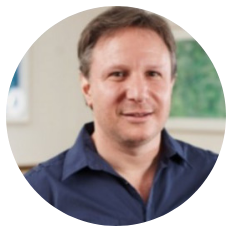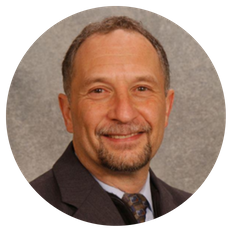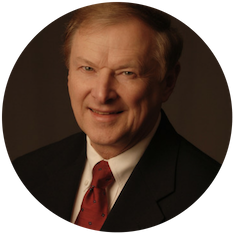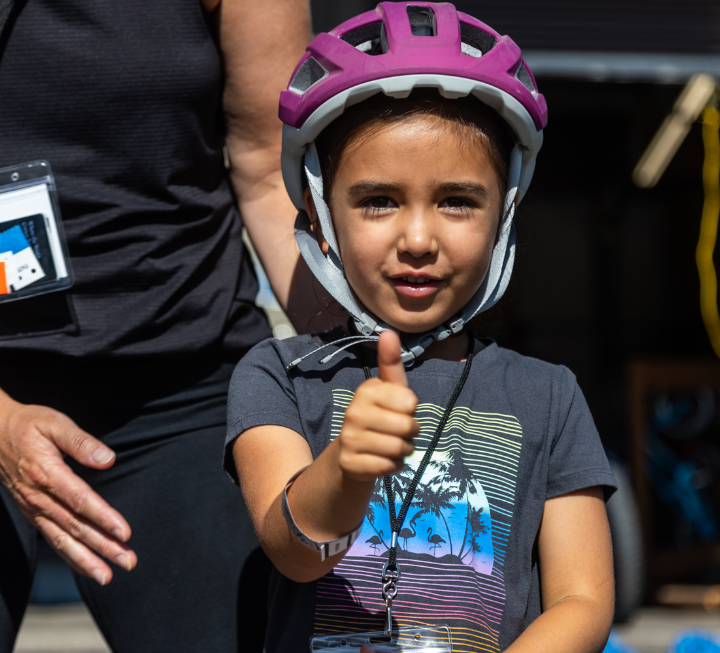Our Scientific Advisory Board (SAB) provides guidance and direction for the organization’s research and programs. It plays a key role in guiding and prioritizing research projects and funding, assists with web content, guides, and commentary, and is committed to furthering our mission to help children reach their full potential after epilepsy surgery.
The SAB is comprised of internationally recognized or promising researchers and specialists with particular interest in the functional effects of pediatric epilepsy surgery. It is comprised of leaders in research, clinical practice, and advocacy who have made significant contributions to the fields of pediatric epilepsy and epilepsy surgery, cerebral palsy research, neuro-rehabilitation, education, and related fields. Members of the SAB will represent the various research and clinical specialties that are encompassed by the many facets of pediatric epilepsy, epilepsy surgery, and body systems and brain circuits affected by epilepsy or epilepsy surgery, including, but not limited to neurology, neurosurgery, neuro-anatomy, kinesiology, orthopedics and orthopedic surgery, opthalmology, neuro opthalmology, endocrinology, anatomy, kinesiology, and other aligned professions. The SAB will consist of 5-20 members, who have been invited to serve by the organization’s Executive Director.
The full inaugural SAB will be formed by the end of 2018.
Download our SCIENTIFIC ADVISORY BOARD POLICY

Dr. Taylor Abel, MD
Dr. Taylor Abel is the Director of the Pediatric Epilepsy Surgery Program at Children’s Hospital of Pittsburgh. Dr. Abel is from Seattle, Wash. and completed his undergraduate and medical education at the University of Washington. After his medical education in Seattle, Dr. Abel completed neurosurgery residency at the University of Iowa Hospitals and Clinics, where he received specialized training in epilepsy surgery and brain mapping techniques. During his time at Iowa, Dr. Abel completed an NIH-funded postdoctoral fellowship focusing on human brain electrophysiology, specifically the identification of higher cognitive functions (i.e. language, visual recognition) patients with epilepsy. He completed an epilepsy surgery fellowship with Philippe Kahane, Dominique Hoffmann, and Stephan Chabardes at University Hospital of Grenoble in Grenoble, France. In Grenoble, Dr. Abel received special training in identification of epileptic foci using stereoelectroencephalography and use of the ROSA robot for epilepsy surgery. Dr. Abel then completed a pediatric neurosurgery fellowship with Jim Drake and Jim Rutka at The Hospital for Sick Children in Toronto, Canada focusing on epilepsy surgery, neuro-oncologic surgery, craniofacial surgery, and endoscopic techniques.

Dr. Andrew Gordon, PhD
Dr. Andrew Gordon is a renowned cerebral palsy researcher. Founder of the Center for Cerebral Palsy Research at Columbia University and professor of Movement Sciences, Motor Learning & Control, he and his team developed hand–arm bimanual intensive therapy (HABIT) using the principles of motor learning and neuroplasticity to address these bimanual impairments. Dr. Gordon is also the recipient of a $150,000 grant from The Brain Recovery Project which he has used over the past several years to include children after hemispherectomy in his study cohort to better understand whether this is an effective, evidence-based intervention to improve hand function after hemispherectomy surgery.

Joanna A. Christodoulou, EdD
Dr. Joanna A. Christodoulou is Assistant Professor in the Department of Communication Sciences and Disorders, and leads the Brain, Education, and Mind (BEAM) Team in the Center for Health and Rehabilitation Research at the MGH Institute of Health Professionals. She is also an adjunct lecturer at Harvard University, and a research affiliate at the Gabrieli Lab, McGovern Institute for Brain Research at the Massachusetts Institute of Technology.
She integrates her roles as clinician, developmental cognitive neuroscientist, and educator, focusing her work on:
- Identifying risk factors from school and home contexts associated with learning challenges
- Investigating effective identification of learning difficulties across clinical and research settings
- Optimizing intervention practices for struggling students
To explore these research areas, Dr. Christodoulou uses neuroimaging and behavioral tools and works with participants as young as four years old through adulthood. Her primary research focus has been on the development of reading and related skills, and approaches to harnessing individual variability to improve educational outcomes. In addition, Dr. Christodoulou studies the brain-behavior dynamic underlying reading and cognitive skills.
Dr. Christodoulou’s work has been supported locally, nationally, and internationally. She was awarded the Transforming Education Through Neuroscience Award by the Learning & the Brain Foundation and the International Mind, Brain, and Education Society (2014). She joined a select group of researchers at the White House (2015) to discuss education neuroscience topics and implications for practice. She also received a Faculty Research Fellowship Grant by the Institute (2014) to investigate the impact of summer experiences on reading for students with language-based learning disabilities.
Dr. Christodoulou has collaborated with us for many years, collecting data, publishing research papers specific to reading after hemispherectomy, and speaking at our 2014 scientific symposium.

Dr. M. Scott Perry, MD
Dr. Perry joined the Neurosciences Program at Cook’s Children in 2009 as a pediatric epileptologist, then served as the Medical Director of the Epilepsy Monitoring Unit and Tuberous Sclerosis Complex clinic before assuming the role of Medical Director of Neurology in 2016. His clinical and research interests focus on the treatment of childhood onset epilepsy, specifically those patients with uncontrolled epilepsy or those for which the cause has not been determined. Dr. Perry has a deep interest in the use of surgical therapies to treat and cure epilepsy. The majority of his research has investigated the use of multimodal imaging techniques to localize seizure onset, as well as the description of patient and disease characteristics that predict favorable outcomes from surgical therapies. He joined Cook Children’s specifically because the staff of the Epilepsy Monitoring Unit and Comprehensive Epilepsy Program were dedicated to improving the care of children with epilepsy through cutting-edge techniques, research, and concern for their patients’ wellbeing.
His research and experience has shown that many patients may have suffered years with uncontrolled epilepsy of unknown cause, but upon reevaluation a diagnosis may be made. With these patients in mind, Dr. Perry created the Genetic Epilepsy Clinic at Cook Children’s, along with his partners in genetics, to improve the diagnosis, understanding, and treatment of children with these rare conditions. Outside of his clinical and research interests, Dr. Perry also serves on a number of local, national, and international committees dedicated to improving the care of childhood onset epilepsy.

Dr. Raymund Woo, MD
Dr. Raymond Woo, MD, is Medical Director of the Pediatric Orthopedic Program at Florida Children’s Hospital. He is a pediatric orthopaedic surgeon who specializes in spine surgery, scoliosis and congenital orthopaedic issues. He has been recognized for their outstanding capabilities and offer comprehensive orthopaedic treatments for children and adolescents, has been recognized among the Best Doctors in America, and has earned numerous distinctions throughout his medical training. Dr. Woo earned his medical degree and carried out both his general surgery internship and orthopaedic surgery residency at Wayne State University School of Medicine in Detroit. He next undertook his advanced fellowship training in orthopaedic pediatric surgery at Scottish Rite Children’s Medical Center in Atlanta. Dr. Woo is a Fellow of the North American Spine Society and a leading physician at Florida Center for Pediatric Orthopeaedics.

Dr. Lucinda Baker, PhD, PT
Dr. Lucinda Baker, PhD, PT, and former Director of the Clinical Electrophysiology Laboratory at USC. Dr. Baker’s work includes the clinical applications of functional electric stimulation. Her research focus is on the evaluation of the human nervous system, specifically assessing the state of motoneuron and interneuron excitability at the level of the spinal cord. Dr. Baker teaches in the areas of electrophysiology, neurophysiology and neuroanatomy.
Her detailed videos on proper electrode placement when using functional electric stimulation can be found here. She is the co-author of Neuromuscular Electric Stimulation – A Practical Guide.

Dr. Lynn Paul, PhD
Dr. Paul is a senior research scientist and Director of the Psychological Assessment for Research Laboratory at the California Institute of Technology. Dr. Paul studies the neural systems and processes involved in social aspects of daily functioning, decision making, and executive functions. Most specifically, she is examining the contribution of inter-hemispheric connectivity to higher-level cognitive functions in humans by studying long-term neurological, cognitive and psychosocial outcomes in individuals with congenital malformations of the corpus callosum.
In 2002, Dr. Paul was founding president of the National Organization for Disorders of the Corpus Callosum (NODCC), a non-profit collaboration between scientists, practitioners and families. The NODCC is a 501c3 not-for-profit that beings families, clinicians, and scientists together in the effort to improve quality of life for people with callosal disorders. Dr. Paul co-authored “ACC and Me”, a children’s book about a boy with callosal agenesis and “Emme and Me”, a book for children who have a sibling with DCC. Hardcopies available through www.nodcc.org and Kindle versions available through Amazon.com (proceeds go to NODCC).
She is also a founding member of the recently convened International Research Consortium for the Corpus Callosum and Cerebral Connectivity (IRC5) and serves as the International Psychology Advisor for Australian Disorders of the Corpus Callosum (AusDoCC).

Dr. Phil Zeitler, MD, PhD
Dr. Phil Zeitler, MD, PhD is a Medical Director at Children’s Hospital Colorado Clinical & Translational Research Center where he specializes in Pediatric Endocrinology and conditions related to infant, toddler, pediatric and teen health. These include: pediatric diseases, juvenile diabetes, osteoporosis, adrenal diseases, thyroid Disease, thyroid cancer; weight loss and dieting. Dr. Phil Zeitler is also a Professor of Pediatrics and Clinical Sciences, and the section head of Pediatric Endocrinology at the University of Colorado, Denver. Here he was honored with the Thomas Jefferson Award, one of CU’s highest honors which acknowledged his community service work, research, and excellence in the performance of regular academic responsibilities. Dr. Phil Zeitler is a renowned expert in pediatric endocrinology and has made substantial contributions to the understanding of Type 2 diabetes, which he continues to research in addition to endocrine disorders; metabolic and hormonal imbalances.

Dr. Linda Lawrence, MD
Dr. Linda Lawrence, MD established in 1986 a solo, private practice in comprehensive ophthalmology with pediatric emphasis in Salina, Kansas. Since 1992, she performs functional vision assessment in the early intervention, Part C program, at Salina Regional Health Center, Kansas, and has documented the high rate of undiagnosed ocular pathology in infants and toddlers with developmental disabilities, and advocated for earlier detection and interventions. She performs outreach services with the Kansas State School for the Blind and is a volunteer consultant for Centro Ann Sullivan del Peru (CASP) in Lima, Peru, an educational NGO for students with neuro-developmental disabilities.
Dr. Lawrence has been an invited speaker to many national and international meetings, and trains trainers in the area of early intervention for infants and toddlers with multiple disabilities and low vision for local, national, and international teams including Brazil, Peru, India, and Nigeria, and throughout the Middle East.
She volunteers for ORBIS, and is Assistant Clinical Professor of Ophthalmology, University of Kansas. Dr. Lawrence has co-authored a book chapter on Pediatric Low Vision. She is a member AAO (American Academy of Ophthalmology) and AAPOS (American Association for Pediatric Ophthalmology and Strabismus), chairing the AAPOS committee on Pediatric Low Vision Rehabilitation and the AAO committee on Global Education and Outreach. She is on the WHO International Consensus scientific committee developing International Low Vision Rehabilitation Standards including birth to 3 years. Dr. Lawrence was honored by the AAO with the International Humanitarian Services Award in 2009 for her volunteer work in Kansas, and internationally.

Sue Yudovin, RN, MN, CPNP
Sue Yudovin is a MN with over 30 years of experience as a Pediatric Neurology Clinical Nurse at the UCLA School of Medicine where she coordinates the pediatric epilepsy surgery program. Sue has worked tirelessly with families whose child is undergoing evaluations for epilepsy surgery, participates in preoperative and postoperative teachings, and interacts with school systems for children who have undergone epilepsy surgery. Sue is also the coordinator for an IRB approved research study that looks at outcomes of children who have sustained mild, moderate or severe head trauma. Their research involves looking at factors that may determine a child’s outcome and create specific guidelines for the treatment of these children in both the acute and chronic setting.
Sue continues to expand her extensive list of publications and research involvement, she maintains current memberships many professional organizations, is a member of the Child Neurology Foundation Board of Directors. Sue has been a relentless champion for all her patients, their families, as well as their medical and educational team.

Frank Musiek, PhD, CCC-A
Dr. Frank Musiek is a renowned international expert on central auditory processing disorders. His research on electrophysiology and central auditory processing has led to the discovery and implementation of numerous tools that are widely used for assessment of the auditory brainstem and central auditory pathways. His research has made immense contributions to our understanding of the anatomy, physiology and neurophysiology of the human auditory system.


